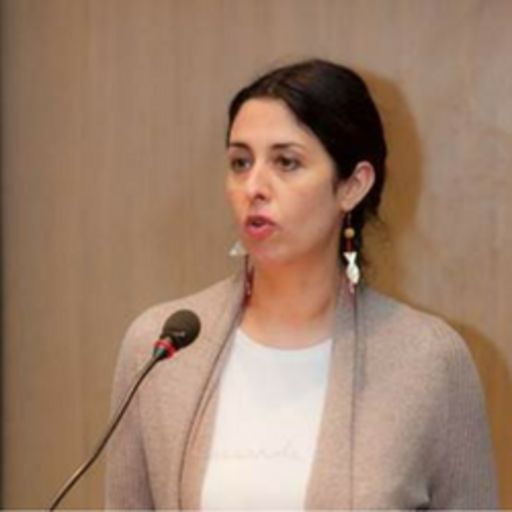Reproducibility Issues in Publications With Big Data
Aim
Big Data based research has become a dominant feature of many scientific fields such as high throughput genomics, proteomics, medicine, biotechnology, agronomy and many others. In recent years it has been recognised that publications based on Big Data have very specific issues which are not fully understood and result in conflicting inferences on causality leading to general mistrust to published results. The aim of this work is to bring out focus which publishers of scientific journals are facing when Big Data results are presented. Emphasized are key issues related to source data availability, algorithmic and software reliabilities, model validations, and data adjustments methodologies aiding cognitive inference.
Methods
The main concern in Big Data analysis is the extraction of key features and adjustments of co-founders needed for unsupervised pattern recognition and/or supervised learning of functional relations and cognitive inference. Described are the main methodologies and critical review of algorithms for data regularization such as principal component analysis and regression (PCA, PCR, PLS), elastic nets (LASSO), decision trees (DT), and artificial neural networks (ANN) (1-4). Since most of Big Data research are based on large scale observational studies which are unbalanced and lead to significant biases presented are positive and negative aspects of propensity score data adjustments to mimic properties of randomized trials. Application of data bootstrapping is emphasized as the key methodology needed for model validation and cognitive inference from Big Data studies (5-6).
Results and Discussion
Science progresses by corroboration through publications in scientific journals, books and electronic data exchange. Todays world of Big Data is result of integration of high throughput data, large databases and extensive networking facing upcoming 5G technologies. Validation of data and inference of cognition becomes the critical aspects for publishers of science journals. Although reproducibility and availability of data have been golden standards for valuable research, nowadays volume of data and complexity of algorithmic analysis and inference have put scientific journals at new and difficult issues. It is believed that only about 40 % of recently published science results can be reproduced (7). Reproducing scientific experimental data and algorithmic, usually which are not necessarily statistically sound, have become problematic for several reasons. Some of the main problems specific to Big Data studies are related to difficulties and lack of collaborative reproduction (parallel independent laboratory work) of experimental data, incomplete or faulty experimental design (DOE), unvalidated software tools, unawareness of data confounding, and blind use of machine learning algorithms. Science journal editors should insist on detailed exposition of DOE model, availability of source data and applied software. Applied algorithmic inference should be detailed on basics from probability theory and statistics, and proceeded with data science software tools. The key step in analysis of high dimensional big data sets is identification of key features, i.e. regularization of columns of the data matrix. Commonly are applied methods based on eigen value decomposition leading to principal components (PCA), principal component regression (PCR), and partial least squares (PLS). The methods are very effective but do not account interactions between key features, i.e. synergism and antagonism between variables is not explicated. In order to avoid model bias and misconception needed are systemic tests of presumed nonlinearities. Regularization with search of feature interactions is accounted by use of decision trees (forest) and artificial neural networks (convolution layer). Critical point in big data pattern classification, for example when applied for medical diagnosis, is model evaluation by data bootstrapping. Accuracy of the models should be evaluated by ROS graphs and numerically by AUC values. The most difficult issues are related to data adjustments for causality deduction. Fully randomized trials, including Mendellian data, which are mainly reported for drug trials and pharmacokinetic studies, fulfil requirements for elimination of feature confounding effects. However, most big data analysis are founded on observational studies and profoundly exposed to confounding and are not reliable for cognitive inferences. Science editors should recommend to researcher, before acceptance of results for publication, to test their causality inferences by propensity score data matching. Since Big Data models are basically deeply complex thorough multiple cross validation by bootstrapping, possible from independent sources, should be required before acceptance for publication.
Conclusion
In view of critical confidence into reproducibility and reliability of research publications based on Big Data projects a checklist for validation of analysis and inference of cognitive relations can be proposed. The main concern is focused on the initial assumptions and assumed of modelling thesis incorporated into research DOE plan. Collaborative multi laboratory parallel data acquisition is essential, especially for fundamental projects in molecular medicine and pharmacology. Validation of algorithmic methodologies applied for analysis should be based on feature space regularization followed by extensive bootstrap validation. Since most of Big Data research projects are observational studied feature confounding is present and data must be adjusted by matching by one of propensity score methods (often regularized logistic model).
In conclusion, ideally results from multiple (more than two independent) institutions (laboratories) which have different and unrelated key sources of potential bias and confounding should be compared. Open data policy of source data and software for algorithmic inferences should be available.
 Gwen FranckEIFL, Lithuania
Gwen FranckEIFL, LithuaniaGwen Franck is consultant and facilitator, interested in the ‘hands on’ aspects of Open Science such open access publishing, self-archiving… More →
 Victoria TsoukalaEuropean Commission
Victoria TsoukalaEuropean CommissionVictoria Tsoukala works as a Policy Officer in the European Commission, DG RTD.G2: Open Science, in Secondment from her position at the… More →
 Adriaan van der WeelLeiden University
Adriaan van der WeelLeiden UniversityAdriaan van der Weel is Bohn extraordinary professor of Modern Dutch Book History at the University of Leiden and lecturer in Book and… More →
 Sami SyrjämäkiFederation of Finnish Learned Societies
Sami SyrjämäkiFederation of Finnish Learned SocietiesDr Sami Syrjämäki is the head of publications at the Federation of Finnish Learned Societies. His expert work focuses on science policies… More →
 Thed van LeeuwenLeiden University
Thed van LeeuwenLeiden UniversityThed van Leeuwen is a senior researcher at the Centre for Science and Technology Studies (CWTS) of Leiden University in the Netherlands. As… More →
 Andrei RostovtsevDissernet, Russia
Andrei RostovtsevDissernet, RussiaProf Andrei Rostovtsev is a Russian physicist, doctor of physical and mathematical sciences. He graduated from the National Research Nuclear… More →
 Vanessa ProudmanSPARC Europe
Vanessa ProudmanSPARC EuropeVanessa Proudman is Director of SPARC Europe; she is working to make Open the default in Europe. Vanessa has 20 years’ international… More →
 Ana MarušićUniversity of Split
Ana MarušićUniversity of SplitAna Marušić is Professor of Anatomy and Chair of the Department of Research in Biomedicine and Health at the University of Split School of… More →
 Alen VodopijevecRuđer Bošković Institute
Alen VodopijevecRuđer Bošković InstituteMSc Alen Vodopijevec obtained his diploma in 2003 at the University of Zagreb, Faculty of Social Sciences and Humanities, and currently is… More →
- Anita Pavić Pintarić
 Damien VannsonThunken
Damien VannsonThunkenBuilder at heart, driven by the satisfaction of turning shower thoughts and back-of-the-envelope plans into full-fledged, user-friendly… More →
 Danijel GudeljUniversity of Zagreb
Danijel GudeljUniversity of ZagrebDanijel Gudelj is M.A. of sociology and croatology, graduated at Centre for Croatian Studies, University of Zagreb. Currently, he is a… More →
 Blaž RebernjakUniversity of Zagreb
Blaž RebernjakUniversity of ZagrebBlaž Rebernjak was born in Zagreb in 1983, where he finished primary and secondary schools. In 2007 he obtained his MA and in 2013 his PhD… More →
- Evgenia Arh
 Drahomira CuparUniversity of Zadar
Drahomira CuparUniversity of ZadarDrahomira Cupar, Phd, is an assistant professor at the University of Zadar, Department of Information Sciences. She obtained her PhD in… More →
 Elizabeth WagerSideview
Elizabeth WagerSideviewElizabeth (Liz) Wager, PhD is a freelance consultant and trainer who has worked on six continents. She chaired the Committee on Publication… More →
 Filip HorvatUniversity of Rijeka
Filip HorvatUniversity of RijekaFilip Horvat is a librarian at the Faculty of Civil Engineering, University of Rijeka. He received his Master’s degree in Information… More →
 Goranka MitrovićNational and University Library in Zagreb
Goranka MitrovićNational and University Library in ZagrebGoranka Mitrović, senior librarian, works at the National and University Library in Zagreb, Croatia (NUL) since 1993. Her research interest… More →
 Draženko CeljakUniversity Computing Centre
Draženko CeljakUniversity Computing CentreMSc Draženko Celjak is the head of data services at SRCE – University of Zagreb University Computing Centre. He coordinates and leads the… More →
 Iva Melinščak ZlodiUniversity of Zagreb
Iva Melinščak ZlodiUniversity of ZagrebIva Melinščak Zlodi works as an e-resources librarian at the Library of the University of Zagreb Faculty of Humanities and Social Sciences… More →
 Ivana MajerUniversity of Zagreb
Ivana MajerUniversity of ZagrebIvana Majer graduated from the Faculty of Humanities and Social Sciences at the University of Zagreb, and got her degree in Croatian… More →
 Irena KranjecUniversity of Zagreb
Irena KranjecUniversity of ZagrebIrena Kranjec works as a subject librarian for information sciences at the Library of the Faculty of Humanities and Social Sciences… More →
 Jasminka MaravićCARNet Department for Education Support
Jasminka MaravićCARNet Department for Education SupportJasminka Maravić is Project Manager at CARNet Department for Education Support. During her 14 years in CARNet she has been involved in… More →
 Krešimir ZauderUniversity of Zadar
Krešimir ZauderUniversity of ZadarKrešimir Zauder was born in Zagreb, Croatia in 1980. He graduated Information science and English language and literature in 2006. In 201… More →
 Jure TriglavCollaborative Knowledge Foundation
Jure TriglavCollaborative Knowledge FoundationJure is the lead developer at the Collaborative Knowledge Foundation, where he develops the PubSweet framework and supports its community. More →
- Josipa Zetović
 Kristina RomićNational and University Library in Zagreb
Kristina RomićNational and University Library in ZagrebKristina Romić works at the Acquisition Department, National and University Library in Zagreb, Croatia. She graduated from the Faculty of… More →
- Ksenija Baždarić
 Ksenija Švenda RadeljakUniversity of Zagreb
Ksenija Švenda RadeljakUniversity of ZagrebKsenija Švenda Radeljak is employed at the Library of Department of Social Work at the Faculty of Law University in Zagreb. The areas of her… More →
 Linda SīleUniversity of Antwerp
Linda SīleUniversity of AntwerpLinda Sīle is doctoral student at the University of Antwerp within the Centre for R&D Monitoring (ECOOM). My current work spans somewhat… More →
 Lovela Machala PoplašenUniversity of Zagreb
Lovela Machala PoplašenUniversity of ZagrebLovela Machala Poplašen is a head librarian at the Andrija Štampar Library, School of Public Health, School of Medicine, University of… More →
- Ljiljana Poljak
 Luc BorutaThunken
Luc BorutaThunkenPh.D. in computational linguistics, natural language processor, interested in linked data and linguistic diversity. In previous lives, Luc… More →
 Ljiljana Jertec MusapSRCE – University Computing Centre, University of Zagreb
Ljiljana Jertec MusapSRCE – University Computing Centre, University of ZagrebMSc Ljiljana Jertec is a librarian and computer specialist at SRCE – University of Zagreb University Computing Centre. She has a Master’s… More →
 Lucija VejmelkaUniversity of Zagreb
Lucija VejmelkaUniversity of ZagrebLucija Vejmelka is an assistant professor at the University of Zagreb, Faculty of Law, Department of Social Works, where she leads the… More →
- Marijana Briški Gudelj
 Marijana GlavicaUniversity of Zagreb
Marijana GlavicaUniversity of ZagrebMSc Marijana Glavica works as a systems librarian at the University of Zagreb Faculty of Humanities and Social Sciences Library, where she… More →
 Marina Cvitanušić BrečićCroatian Agency for Science and Higher Education
Marina Cvitanušić BrečićCroatian Agency for Science and Higher EducationMarina Cvitanušić Brečić works at the Analytics and Statistics Department of the Croatian Agency for Science and Higher Education (ASHE… More →
 Marina GrubišićCroatian Agency for Science and Higher Education
Marina GrubišićCroatian Agency for Science and Higher EducationMarina Grubišić is the head of the Analytics and Statistics Department of the Croatian Agency for Science and Higher Education (ASHE). She… More →
 Matko MarušićUniversity of Split
Matko MarušićUniversity of SplitMatko Marušić is Professor Emeritus at the University of Split, Split, Croatia. He was a Professor at Medical Schools (in Zagreb and Split… More →
- Nicolas Robinson-Garcia
- Neven Pintarić
 Paulin RibbeOpenEdition
Paulin RibbeOpenEditionPaulin Ribbe is Project Manager for the OPERAS infrastructure at OpenEdition (France, Marseille - CNRS, AMU, EHESS, Avignon Univ.). He holds… More →
 Radovan VranaUniversity of Zagreb
Radovan VranaUniversity of ZagrebBorn in Zagreb, Croatia. Primary and secondary education completed in Zagreb. Croatia. Graduated information sciences and the English… More →
 Rafaelly StavaleUniversity of Brasília
Rafaelly StavaleUniversity of BrasíliaRafaelly Stavale is a current student of Nursing at Universidade de Brasília – UnB. She has recently completed the Principles and Practices… More →
 Olga KirillovaAssociation of Science Editors and Publishers (ASEP), Moscow, Russia
Olga KirillovaAssociation of Science Editors and Publishers (ASEP), Moscow, RussiaOlga V. Kirillova, Candidate of Science (Engineering, 2004), the President of the Association of Science Editors and Publishers (ASEP, since… More →
 Pierre MounierOpenEdition
Pierre MounierOpenEditionPierre Mounier is deputy director of OpenEdition , a comprehensive infrastructure based in France for open access publication and… More →
 Rodrigo CostasLeiden University
Rodrigo CostasLeiden UniversityRodrigo Costas is an experienced researcher in the field of information science and bibliometrics. With a PhD in Library and Information… More →
 Tihana RubićUniversity of Zagreb
Tihana RubićUniversity of ZagrebTihana Rubić is an assistant professor at the Department of Ethnology and Cultural Anthropology, Faculty of Humanities and Social Sciences… More →
 Vicko TomićUniversity of Split
Vicko TomićUniversity of SplitVicko Tomić is a research assistant at the Department of Research in Biomedicine and Health at the University of Split School of Medicine… More →
 Vanessa FairhurstCrossref
Vanessa FairhurstCrossrefVanessa Fairhurst joined Crossref in 2017 and is based at the Oxford office. As Community Outreach Manager, her role involves working… More →
 Želimir KurtanjekUniversity of Zagreb
Želimir KurtanjekUniversity of ZagrebŽelimir Kurtanjek is a retired professor of chemical engineering with an interest in biotechnology, biostatistics and big data analytics… More →
 Vlatka BožičevićUniversity of Zagreb
Vlatka BožičevićUniversity of ZagrebVlatka Božičević gratuated from Religious Pedagogy and Catechetics at the Catholic Faculty of Theology University of Zagreb and the… More →
- Željka Salopek
 Zoran VelagićUniversity of Osijek
Zoran VelagićUniversity of OsijekZoran Velagić is a professor of book history and publishing studies at the University of Osijek, Faculty of Humanities and Social Sciences… More →